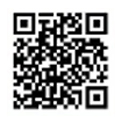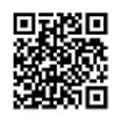目的调查分析影响社区老年居民健康体检的因素,并提出相应对策。方法采用整群抽样的方法,使用调查问卷对兰州市3个街道社区年龄大于50岁的老年居民进行调查,共发问卷524份,回收合格问卷488份(93.1%)。对收回问卷进行整理,根据过去1年是否进行体检,分为体检组231人(47.34%)与未体检组257人(52.66%),对两组人群人口学因素、社会学因素、经济因素进行统计学分析。结果488名被调查的居民中,体检组居民与未体检组居民平均年龄、性别构成比较差异有统计学意义(P<0.01)。 对影响参与体检因素进行多因素Logistic回归分析发现,年龄与性别是影响居民参加体检的重要因素,年龄大的人更愿意参加体检,OR为1.072,95% CI为[1.060,1.084];女性较男性更愿意参加体检,OR为1.913,95% CI为[1.641,2.185]。结论性别、年龄、月收入是影响社区老年居民参加健康体检的主要因素,应采取加大健康知识宣传等方法来增加社区老年居民健康体检的参与度。
当前位置:首页 / 社区老年居民健康体检的影响因素调查及对策探讨
疾病预防与控制
|
更新时间:2015-09-29
|
社区老年居民健康体检的影响因素调查及对策探讨
Discussion on the associated factors and countermeasure of health examinations among urban community elderly residents
内科 201502期 页码:245-247
作者机构:1 甘肃省兰州市城关区临夏路街道社区卫生服务中心;2 甘肃省兰州市第一人民医院,兰州市730050
基金信息:(收稿日期:2014-12-29修回日期:2015-02-24) *通讯作者
- 中文简介
- 英文简介
- 参考文献
ObjectiveTo explore the associated factors of health examinations among urban community elderly residents, provide references countermeasure. MethodsCommunity elderly residents with age of 50 and above in 3 street communities of Lanzhou were selected by cluster sampling method. The elderly were surveyed questionnaire, and 524 questionnaires were done,488 questionnaires (93.1%) were available.488 residents were divided into examination group(231 people ,47.34%) and non-examination group(257 people,52.66%) according to have health examination or not. The demography factors,social factors,economic factors of the two groups were analysed. ResultsThe difference of gender, age in the two groups was statistically significant(P<0.01).Multi-factor Logistic regression analysis showed that factors associated with the health examinations of elderly residents included gender, age, the proportion of health examinations was relatively high among the residents characterized by older(OR=1.072,95%CI was 1.060-1.084]), female(OR=1.913, 95% CIwas1.641-2.185). ConclusionsFactors associated with the health examinations of elderly residents including gender, age, income level,countermeasure including health education and such should be implemented pertinently.
- ref




 注册
注册 忘记密码
忘记密码 忘记用户名
忘记用户名 专家账号密码找回
专家账号密码找回 下载
下载 收藏
收藏
